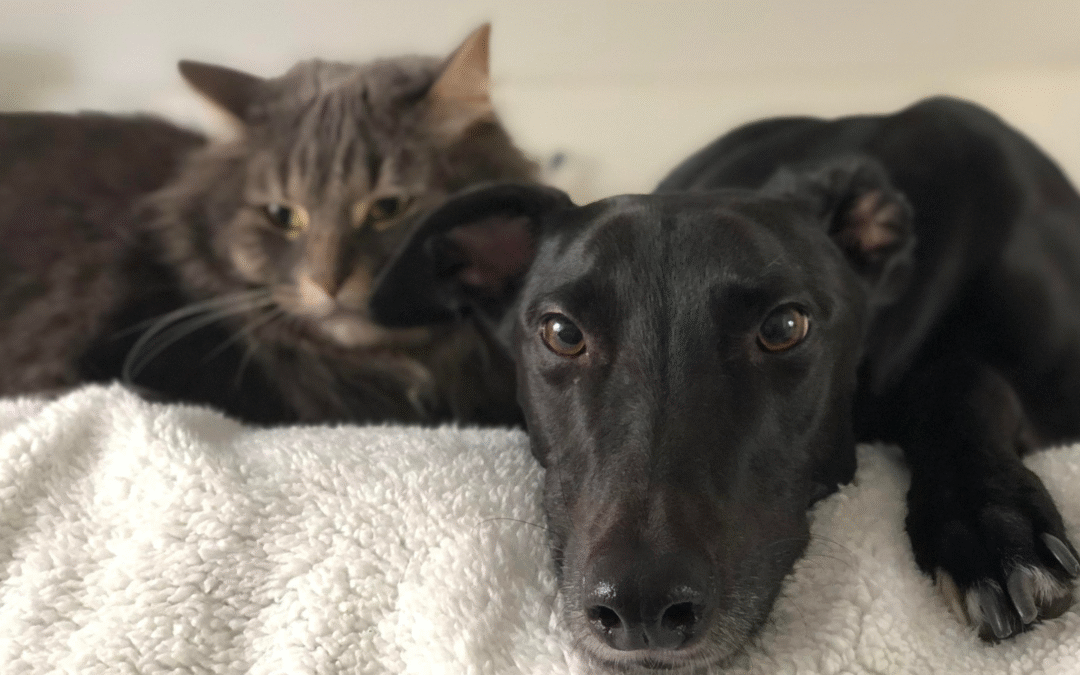While both cats and dogs can fall victim to poisoning, their reactions to certain substances can differ drastically. These differences span from how their bodies process toxins to the types of products that are most dangerous, although some substances can poison both cats and dogs. March is Pet Poison Prevention Month, a time to explore how poison vulnerabilities should shape your approach to pet-proofing your home. At All Creatures Veterinary Hospital, we want pet owners to understand how to protect both feline and canine companions.
Why Cats and Dogs May React Differently to Poisons
Several biological and behavioral differences explain why cats and dogs don’t respond the same way to toxins. Smaller pets, like cats and small breed dogs, are affected more severely by small doses of a toxin. Dogs are reportedly more likely to swallow toxic items than cats. Because of their larger size, canines may also have an easier time knocking over trash bins to eat what is inside. Cats groom themselves more frequently and may ingest toxins from their fur. Certain substances are also simply toxic to one species’ system but not the other’s, such as lilies with felines.
Common Pet Toxins
Cats and dogs can be poisoned by certain substances.
- Lilies: Even a few pollen grains or a sip of vase water can lead to kidney failure in cats.
- Essential Oils: Eucalyptus, citrus, and certain other oils can cause respiratory and liver issues; cats are especially sensitive to essential oils.
- Chocolate: Highly toxic to dogs and can also be poisonous to cats.
- Grapes and Raisins: Can cause sudden kidney failure in dogs and sometimes cats.
- Xylitol: Causes rapid insulin release, leading to hypoglycemia and liver damage in pets.
- Medications: Some medications are specific to cats and dogs.
For a more comprehensive list of toxic items, pet owners can visit the ASPCA’s Animal Poison Control for information on toxic foods, plants, and household items. Their extensive toxic plants guide can even be sorted into cats and dogs.
What to Do if Your Cat or Dog is Poisoned
Whether you have a cat or a dog, quick action can save their life. Identify the toxin and how much your pet has swallowed or been exposed to. If you need to go into a veterinary facility, take a picture of the toxin on your cell if possible, or bring the label. You may notice symptoms of pet poisoning like vomiting, tremors, drooling, or lethargy. Immediately call your veterinarian for emergency pet care or contact a helpline like the Pet Poison Helpline. Animal poison control hotlines will charge a fee for their expert services, but they can make a difference if your vet is not available. As a note, never force your pet to vomit unless a veterinary professional or pet poison expert instructs you to do so.
Keep Your Cat or Dog Safe from Pet Poisoning in Evansville, WY
Understanding how toxins affect dogs and cats can prevent emergencies. March is Pet Poison Prevention Month, so All Creatures Veterinary Hospital encourages you to review your home for species-specific hazards. If you need help pet-proofing your home or responding to a toxin exposure incident, contact us for expert care with poisoning in cats and dogs around Evansville, Casper, Glenroc, and surrounding areas.




